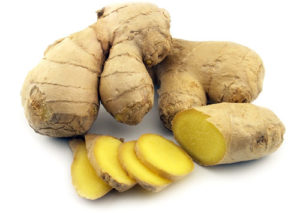
20 Natural Painkillers In Your Kitchen!
Natural Painkillers – 20 Alternatives to Ibuprofen, Acetaminophen & Aspirin
-
Ajwain (Carom Seeds)
-
Adrak (Ginger)
-
Mulathee (Liquorice)
-
Pyaz (Onion)
-
Ghrit Kumari (Aloe vera)
-
Hing (Asafoetida)
-
Kali Mirch (Black Pepper)
-
Mushak Kapur (Camphor)
-
Lavang (Clove)
-
Nariyal (Coconut)
-
Sarson (Mustard)
-
Papeeta (Papaya)
-
Phitkari (Alum)
-
Methi (Fenugreek)
-
Moongphali (Groundnuts)
-
Tulsi (Holy Basil)
-
Dalchini (Cinnamon)
-
Lahsun (Garlic)
-
Shahad (Honey)
-
Haldi (Turmeric)
.
1. Ajwain (Bishop’s Weed / Carom Seeds)
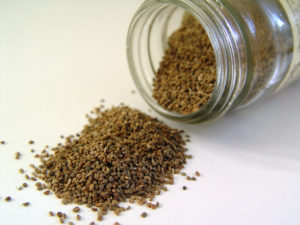 |
| Natural Painkiller |
When you experience a colicky pain in the abdomen, Bishop’s weed proves to be time-tested home remedy which comes to rescue and you thank your stars to have always placed it on your kitchen shelves.
For Which Pain?
This is highly advantageous for pain in the abdomen generally relating to bloating or gas trouble. Although in any form of abdominal distress, be it –
- indigestion,
- loss of hunger,
- excessive wind formation,
- nausea and vomiting,
- abdominal distension,
- pain in the abdomen
- or worm infestations;
Ajwain comes to relief.
How to Use?
You may take half a teaspoon of the same preferably along with a pinch of black salt and with warm water for immediate relief from stomach discomfort. As per Ayurveda text, 1 to 3 grams of the powder of Ajwain should be taken along with warm water for relief.
2. Adrak (Ginger)
|
|
| Natural Painkiller |
In many digestion maladies like indigestion, excessive wind formation, abdominal pain and piles; ginger provides great help. Almost all types of respiratory disorders like cough, cold, pneumonia, asthma, bronchitis etc. would be benefited by the use of ginger. Not only this, joint pains also find good relief by the use of ginger.
For Which Pain?
Disorders of Arthritis, Gout, Oedema and other forms of joint and muscle pains.
How to Use?
For this purpose, a powder of dry ginger is to be mixed into oil of sesame seeds and massaged into the joint. It is always helpful to take hot fomentation after this for pain relief.
3. Mulathee (Liquorice)
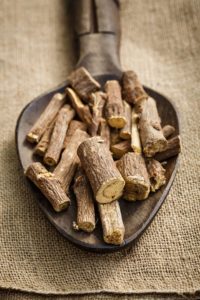 |
| Natural Painkiller |
Ayurveda recommends the herb of liquorice known as mulathee or Yastimadhu for variety of health restoring benefits. It is used both for preventive as well as curative purposes.
For Which Pain?
Pain due to Mouth Ulcers.
How to Use?
A decoction prepared from Liquorice may be used both for gargles and for swallowing. This is a remedy for not only relieving pain due to mouth ulcers, but also is good for pain in the throat and inflammation of the vocal cords.
4. Pyaz (Onion)
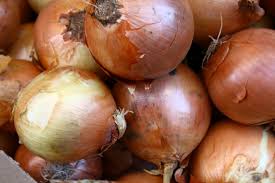 |
| Natural Painkiller |
Onion is one of the most common ingredient of the kitchen and is a store house of healthcare merits in itself.
For Which Pain?
Pain and inflammation due to bruise, injury or contusion.
How to Use?
For relieving pain, you may prepare a paste by pounding onions and heat it. Apply the hot paste of onion on the site as onion poultice for finding relief from the pain and inflammation.
5. Ghrit Kumari (Aloe vera)
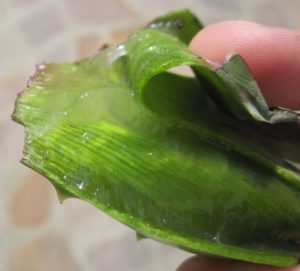 |
| Natural Painkiller |
The herb of Aloe Vera is beneficial in healing wounds, oedema, pain, inflammation and many skin diseases. Both external as well as internal use is recommended.
For which Pain
Generalized Pain and Swelling in the body.
How to Use
Take Aloe vera pulp and mix some turmeric powder into the same. This is to be heated on low flame and later applied (preferably warm) to the site of pain and swelling for relief.
6. Hing (Asafoetida)
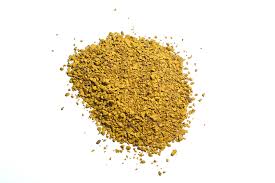 |
| Natural Painkiller |
The natural properties of asafoetida includes being a stimulant, expectorant, carminative and antispasmodic. Thus Hing or Asafoetida comes to use both internally as well as externally. In Ayurveda text, one of the synonyms of asafoetida is Shool -Prashmana which means that what combats pain.
Pain in the abdomen due to excessive wind. External application of Asafoetida in case of abdominal discomfort caused by flatulence is of great help in infants and small children.
How to Use?
Make a paste by mixing powdered Asafoetida into little quantity of warm water. When the baby is suffering from abdominal discomfort, you need to apply this asafoetida paste around the umbilicus of the little one. This proves to be highly relieving for little babies.
7. Kali Mirch (Black Pepper)
 |
| Natural Painkiller |
Black Pepper or Kali Mirch is an essential ingredient of Indian kitchen and is handy and useful in treating a number of common ailments. Ayurveda believes that black pepper invigorates the gastric fire, works as a wormicide and acts as natural a painkiller.
For Which Pain?
Tooth ache and pain in the teeth and gums.
How to Use?
Crush or pound a few pepper corns and make it into powder form. Regular massage with powdered black pepper relieves pain and also prevents frequent dental problems.
8. Mushak Kapur (Camphor)
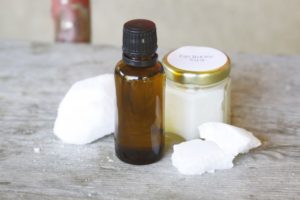 |
| Natural Painkiller |
Camphor helps to relieve the inflammation and pain naturally.
For Which Pain?
Camphor comes handy for relieving pain at the site of injury or wound.
How to Use?
In case of an injury or wound, you need to sprinkle some powder of camphor on the site so as to combat inflammation, blood loss and pain and this also helps to prevent degeneration of the wound.
9. Lavang (Clove)
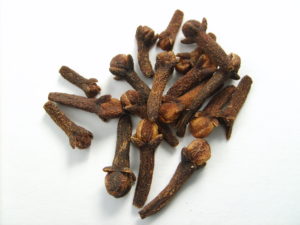 |
| Natural Painkiller |
As a traditional home remedy, Clove has been recommended in relieving pain. Clove or Lavang is a common kitchen ingredient that not only adds to the taste and flavour to the dishes but also is advisable for the health benefits.
For Which Pain?
Toothache.
How to Use?
In case of toothache you can relieve the pain either by pressing Clove between the teeth or cotton dipped in clove oil into the dental crevice. This could relieve not only pain but also exhibits a germicidal action.
10. Nariyal (Coconut)
Use of coconut has been emphasized in Ayurveda for providing respite in the ailments that result from increased heat in the body. It is therefore beneficial in curing the associated maladies like –
hyper-acidity,
gastritis, and
excessive thirst
and heartburn.
For Which Pain?
A pain in the abdomen accompanied with burning sensation can be relieved with Coconut.
How to Use?
Coconut water has the property to subside both heat and pain. You need to slowly take in the sips of coconut water every two hours for subsiding the pain and associated symptoms.
11. Sarson (Mustard)
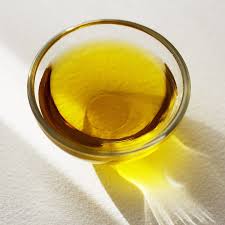 |
| Natural Painkiller |
Mustard oil is easily available in the kitchen and helps to provide strength and warmth to the body. Also, being hot in nature, it helps to alleviate Vata dosha and thus acts as a pain killer.
For Which Pain?
Muscular and Joint Pains.
How to use?
Local massage of Mustard oil over the affected joint is recommended. For this purpose, you may heat the oil prior to massage or take hot fomentation after the massage. This acts as a rubefacient that relieves muscular and joint pains and stiffness.
12. Papeeta (Papaya)
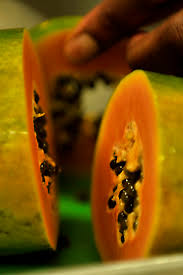 |
| Natural Painkiller |
There are many health benefits of the fruit of Papaya. In case of excessive pain during menstruation or an irregular or decreased flow during the cycle, Papaya comes to use. As for the medicinal purposes; the use of fruit, milk, seeds and also the leaves of Papaya has been mentioned in Ayurveda text.
For Which Pain?
Painful cramps during Menses
How to Use?
A powder prepared by pounding the seeds of Papaya may be taken along with warm water in a dose of half to one gram.
13. Phitkari (Alum)
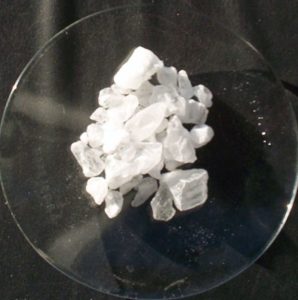 |
| Natural Painkiller |
Alum comes handy for relieving health maladies in a number of ways.
For Which Pain?
Occasional pain and redness in the eyes.
How to Use?
Powdered Alum may be mixed into Gulab jala (rose water) and this preparation is to be carefully filtered through a muslin cloth. You can put 2 to 3 drops of this liquid into the eyes for relief.
14. Methi (Fenugreek)
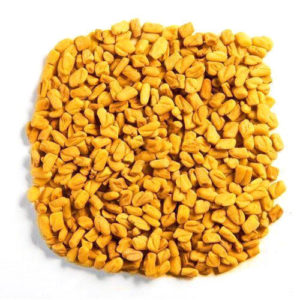 |
| Natural Painkiller |
Being hot in action and slimy by nature, according to Ayurveda, Fenugreek is an eliminator of Vata dosha or the air body humor. It is therefore useful in treating the maladies resulting from an aggravation or distortion in the air body humor.
For Which Pain?
Generalized Pain due to boils or swelling.
How to Use?
A hot paste of Fenugreek when applied locally to an abscess or swelling on the body, can provide subsequent relief.
15. Moongphali (Groundnuts)
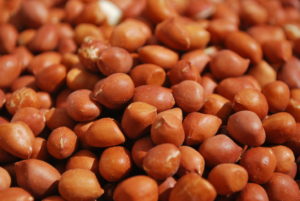
Natural Painkiller |
Being slimy and hot, groundnuts cause a decrease in the Vata dosha or the air body humor.
For Which Pain?
Joint Pains
Hot to Use?
Take some groundnut oil and warm it. Local massage of the joint with groundnut oil previously warmed proves helpful and helps to provide relief in the pain.
16. Tulsi (Holy Basil)
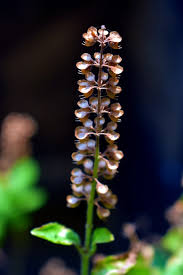 |
| Natural Painkiller |
For Which Pain?
Pain due to bite from a poisonous organism.
How to Use?
Pound the roots and make into paste and apply the same at the site of pain.
17. Dalchini (Cinnamon)
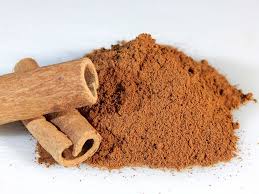 |
| Natural Painkiller |
There are a number of health benefits and curative properties of the customary kitchen condiment of Cinnamon mentioned in Ayurveda text.
For Which Pain?
Pain due to acne or boils.
How to Use?
You can prepare a paste by adding some water to Cinnamon powder. This paste is to be applied over the affected area for relief from inflammation as well as pain.
18. Lahsun (Garlic)
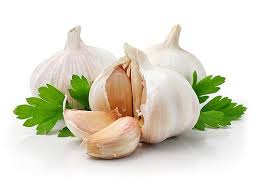 |
| Natural Painkiller |
Ayurveda recommends Garlic in a wide variety of ailments. As a natural painkiller, joint pains, pain due to indigestion or even when there is pain and inflammation due to wounds; many such ailments can be benefited by the intake as well as local application of Garlic.
For Which Pain?
Rheumatic pains and Joint pains.
How to use?
Pound a few garlic bulbs with adding little water. The juice extracted from the same needs to be warmed and massaged into the painful and affected joint. This provides relief from the pain as well as the swelling.
19. Shahad (Honey)
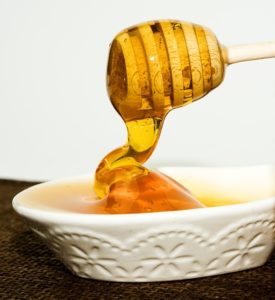 |
| Natural Painkiller |
Ayurveda recommends honey generally to increase body resistance and as excellent energy supplement. It is also advantageous for the throat and respiratory system.
For Which Pain?
Pain in the throat.
How to Use?
Gargles of honey added to decoction of the powders of Amla, Haritki and Baheda (Trifla) provides relief in pain and inflammation in the throat.
20. Haldi (Turmeric)
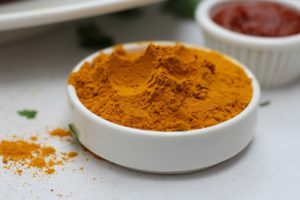 |
| Natural Painkiller |
As per Ayurveda, Turmeric is believed to be a destroyer of aggravation in all the three doshas or basic humors of the body viz. Vata, Pitta and Kapha. Therefore, Haridra or Haldi is recommended in a large variety of ailments.
For Which Pain?
Turmeric or Haridra comes to an extensive use in treating any kind of allergic malady or painful condition in the body.
How to Use?
Applying turmeric warmed along with some mustard oil can treat a pain and swelling resulting from an injury.
Article published here.
About the Author:
Dr Sonica Krishan is Author and Speaker in the areas of Healthy and Joyous Living through Ayurveda, Meditation, Yoga and other Contemplative practices. She is a leading Ayurveda Professional in India. She is also Health Writer, Columnist, Editor, Ayurveda Consultant and Holistic Healing Coach. Dr Sonica is open for National as well as International Collaborations with interested people / institutions in fields of Ayurveda, Meditation and Yoga.
Related Posts:

